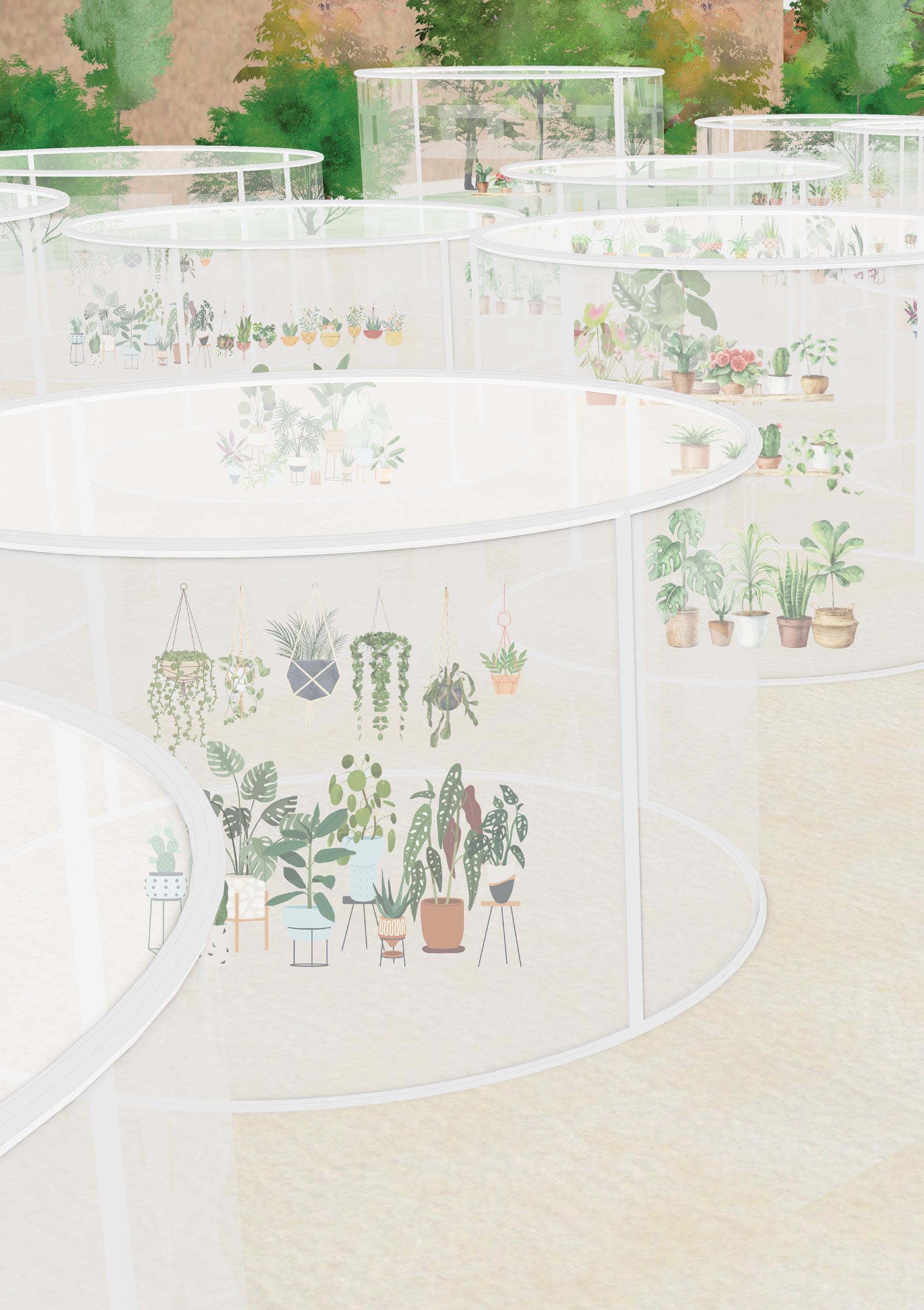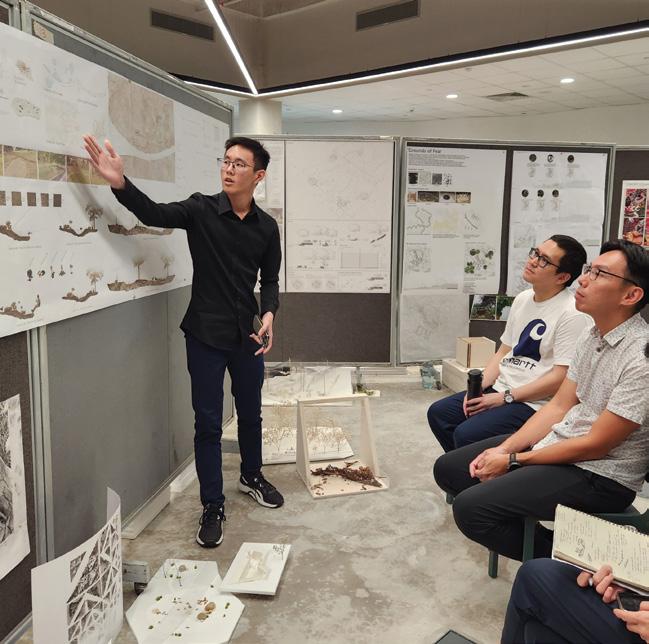
BACHELOR’S DEGREE PROGRAMME

Landscape Architecture



Landscape Architecture
Landscape architecture is the art and science of designing outdoor spaces that are not only beautiful but also functional, sustainable, and responsive to the needs of communities. Landscape architects plan and create a wide range of environments—from parks, gardens, and campuses to waterfront developments and urban plazas. They also restore natural landscapes disturbed by human activity, such as wetlands and forests, and work on preserving historic sites.
NUS offers a four-year Bachelor of Landscape Architecture (BLA) that prepares you to respond to the multifaceted issues unique to the Asian context. Through lectures, design studios, and technical courses, the curriculum delves into topics ranging from tropicality, site specificity, boundaries and scales, to densification, multifunctionality, and placemaking. The core emphasis is on design excellence grounded in critical thinking, analytical inquiry, and creative expression. The BLA provides foundational training in skills and knowledge, equipping you for professional practice or entry into advanced master’s degree programmes.

By designing and implementing projects that respect the needs of both people and the environment, the role of landscape architects is more crucial than ever. They address some of the most pressing challenges of our time, such as urban density, public health, climate change, and environmental degradation. By studying landscape architecture, you can:
Make a Positive Impact
Design sustainable solutions that improve environmental health and promote biodiversity.
Shape Communities
Create inclusive public spaces that bring people together, reflect cultural values, and enhance quality of life.
Innovate for the Future
Utilise cutting-edge technology and creative thinking to address complex urban and ecological issues.

“Discover
the art and science of shaping the world around us, where creativity meets sustainability to design inspiring environments. Join us to turn your passion for nature, innovation and design into a fulfilling career that transforms landscapes and communities!”

DR TERRENCE TAN BLA Programme Director

Year 1
In the first year, students are introduced to foundational aspects of design: ways of sensing, reading, understanding, and interpreting fundamental landscape elements in forms, structures, materiality, and functions. Courses include introduction to landscape architecture, history and theory, and essential landscape representation techniques.

Year 4 Year 3
The fourth year offers a choice between two specialisations: one in Landscape Studies and another in Landscape Practice, both of which further enrich and deepen students’ knowledge of the field and better prepare them to enter the workforce. Students can also expand their horizons through a wide range of unrestricted electives.
Year 2
In the second and third years, courses introduce advanced skills in site representation, site analysis, design representation specialised software, and spatial analytical tools. Students begin to synthesise landscape forms, structures, processes and functions while acquiring specialised knowledge in planting design, landscape engineering, and advanced water sensitive urban design.
Upon completion of the four-year curriculum, students receive a Bachelor of Landscape Architecture (BLA) and are eligible to apply for the MLA programme at NUS with direct admission into the second year if they fulfil the necessary criteria for advanced placement credits (APCs).
The knowledge and skills acquired through our programme prepares you for professional practice both as a landscape architect and various related fields such as design, environmental planning, and advocacy. After graduation, you can:
• Practise Landscape Architecture: Specialise in designing landscapes that mitigate and adapt to the impacts of climate change, biodiversity loss, natural resource extraction, inequity, and food security. Apply state-of-theart technologies and techniques to integrate nature-based solutions into design practices.
• Advocate Sustainable Development and Policy Making: Conduct environmental impact assessments and advocate for sustainable policies in the public, private, and NGO sectors, both in Singapore and across the Asia Pacific region. Critically evaluate landscapes and provide recommendations for enhancement and preservation.
• Further Specialise in Landscape Management: Contribute to effective and sustainable landscape management to meet the needs and aspirations of stakeholders. In an era of multi-functional landscapes, this involves a multidisciplinary approach to overseeing the design, creation, and maintenance of projects, collaborating with professionals from various industries.

Bachelor of Landscape Architecture, Class of 2026
P!D Public Interest Design Prize 2024, Dean’s List for Semesters 1&2 of AY2023/2024, studio projects nominated for ArchiVAL exhibition 2023 and 2024
“Life’s simplest beauty is only perceptible through curious eyes—a perspective I embrace as a Landscape Architecture student, where every detail holds the potential to inspire spaces and shape our interactions with the world.”
Tan Sok Vin
Bachelor of Landscape Architecture, Class of 2023
Landscape Architect, COEN Design
International Pte Ltd
“The knowledge and experiences gained through the BLA programme have been extremely useful in fostering a mindset that encourages ‘out-ofthe-box’ thinking while keeping it logical and manageable alongside clients’ needs.”

Bachelor of Landscape Architecture, Class of 2024
Urban Planner at Urban Redevelopment Authority (URA)
“The supportive community and diverse exposure I gained through the BLA programme have fostered growth and built my confidence to take on real-world challenges.”

Bachelor of Landscape Architecture, Class of 2024
Recipient of Lee Kuan Yew Gold Medal
“Operating at the intersections of ecology, art, people, and technology, I believe we landscape architects are at the forefront of driving transformative change to reshape our environment. Be it pixels on a screen or leaves of a tree, we leverage landscape as a tool to craft spaces that address the pressing challenges facing our cities.”

To be considered for admission to the BLA programme, candidates must hold one of the following qualifications:
Singapore-Cambridge GCE ‘A’ Level
A pass in H1 Chemistry or Mathematics or Physics; OR
A pass in GCE ‘O’ Level Additional Mathematics.
Polytechnic Diploma
(Excluding Advanced Diplomas/Specialist Diplomas/Certificate Courses)
A pass in GCE ‘O’ Level Elementary Mathematics. Applicants who do not fulfill this minimum requirement but have obtained the relevant Graduate DDP Transcripts/Certificate in University Preparatory Mathematics depending on the Polytechnics would be deemed as having met the Mathematics requirement.
International Baccalaureate (IB) Diploma
A pass in SL Chemistry or SL Mathematics: Analysis and Approaches or SL Physics; OR
A pass in HL Mathematics: Applications and Interpretation.
NUS High School Diploma
A good major GPA in Chemistry or Mathematics or Physics.
International Qualifications
A pass in Year 12 or Higher Level Chemistry or Mathematics or Physics or Physical Science. For international students and detailed admission requirements, please refer to www.nus.edu.sg/oam.
Shortlisted candidates will be invited to attend an interview as part of the selection process for admission.

Contact
cde.nus.edu.sg/arch
+65 6516 8736
askdoa@nus.edu.sg